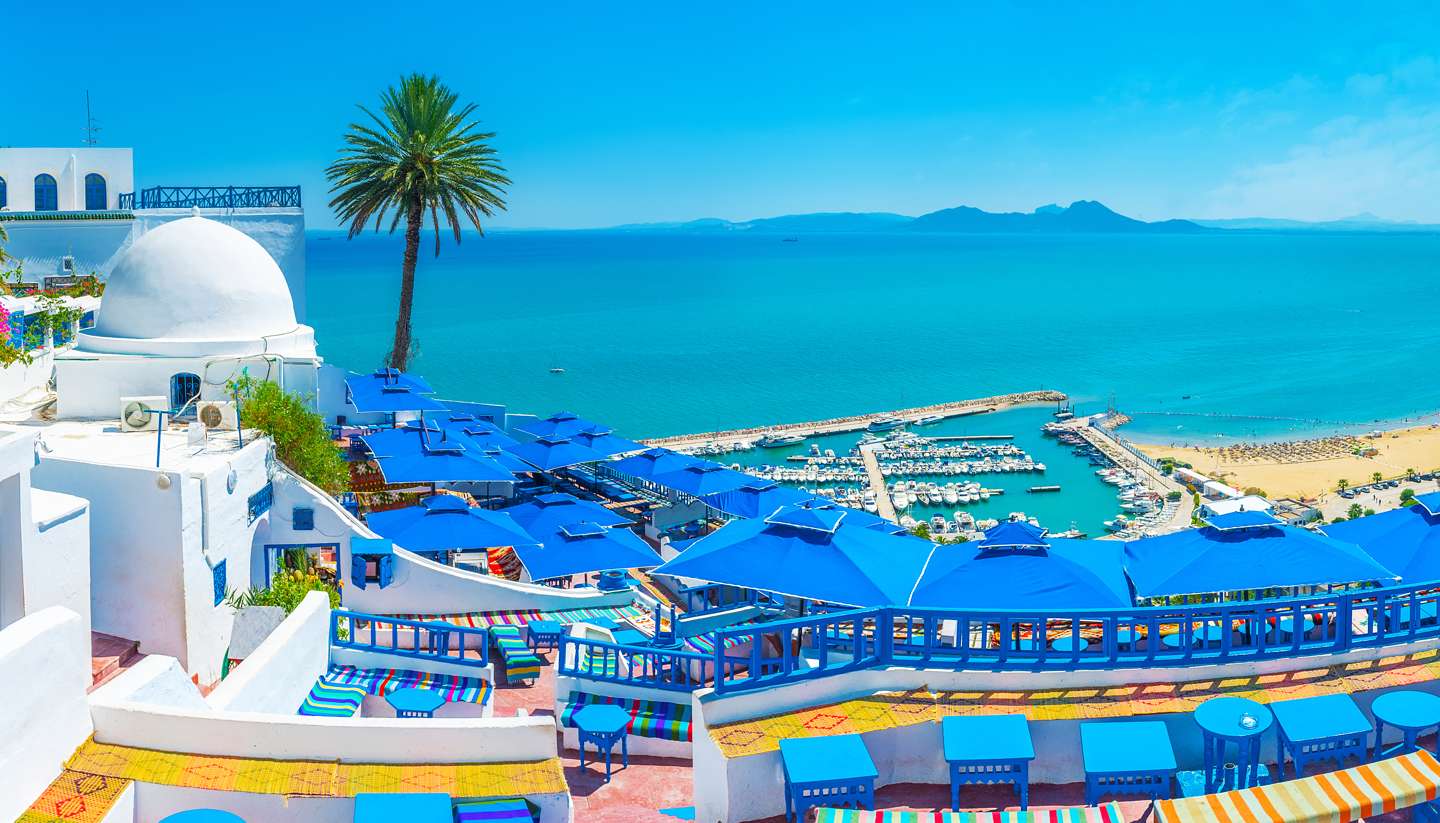Tunisia History, Language and Culture
History of Tunisia
Like much of North Africa, Tunisia's history is one littered with conquests that completely changed the country's path. The most famous people of the ancient world to mark the area of modern-day Tunisia were the Phoenicians, who settled here in the 1st millennium BCE and went on to found their legendary capital of Carthage.
The Phoenicians' expanding regional power brought them to the attention of the Ancient Greeks, and later Rome, leading to the Punic Wars. After three wars, Rome emerged victorious and it is largely their mighty monuments that have survived in Tunisia today.
As Rome waned, the region fell first into the hands of the Byzantine Empire, but it was the Arab Conquest of the 7th century CE that changed the land forever, introducing Islam and a sophisticated culture. Further invasions in the 11th to 13th centuries by Arab tribesman, then Almoravids and Almohads transformed the region even further, bringing near-total Arabisation, new cities and sparkling mosques.
By the 16th century, the Ottoman Turks had incorporated Tunisia into their vast empire, though left little mark on the masses. They held sway until the 19th century 'Scramble for Africa' by European empire builders. The Italians were initially most prominent, until French troops invaded from the neighbouring colony in Algeria, and made Tunisia a French protectorate in 1881.
Independence from France was achieved in 1956, and Habib Bourguiba became the country’s first president. His government was responsible for many of the facets that still shape Tunisia today, from widespread public education to female emancipation.
Bourguiba was succeeded by President Zine El Abidine Ben Ali in 1987, who billed himself as a great moderniser, and announced major economic reforms. Despite this, his regime was guilty of numerous human rights offences and widening inequality, while cronyism and corruption became norms in the latter years of his dictatorship. At the same time, nearly all forms of opposition to Ben Ali's government were repressed through a powerful security apparatus.
In December 2010 rising disenchantment with the regime led to widespread public demonstrations over unemployment, poverty, and freedom of speech, which became known as the Jasmine Revolution and was the trigger for the Arab Spring that swept across the region. Ben Ali was forced to step down as president in January 2011, ushering in a new democratic era.
Did you know?
• The Berbers are believed to have arrived in modern-day Tunisia around 2000 BCE; there remains a small but significant Berber minority.
• During the French protectorate, Tunisians could become French citizens – only if they renounced their 'Muslim' status.
• Until independence, there were almost 100,000 Italians living in Tunisia.
Tunisia Culture
Religion in Tunisia
The principal religion is Islam; there are small Roman Catholic, Protestant and Jewish minorities.
Social Conventions in Tunisia
Arabic in culture and tradition, Tunisia is a liberal and tolerant Muslim society with many equality laws enshrined in the Tunisian Constitution brought in by the country's first president Habib Bourguiba. Polygamy is outlawed, women are free to choose whether to wear the headscarf, and have the right to ask for divorce, work, run their own businesses, and have access to abortion and birth control.
Although cities like Tunis, Sfax and Sousse can seem extremely liberal and modern, it is important to remember that in more rural areas local life is much more traditional. Outside of resort areas visitors should dress modestly out of respect for their culture. Most Tunisian men would not be caught dead wearing shorts once off the beach and in the countryside it is practically unheard of. Likewise, once away from touristy areas, women should avoid wearing skimpy, revealing clothing. When visiting mosques and other religious buildings, both sexes should make sure their clothing covers their upper arms and knees, and women should wear a headscarf. On a separate note, Tunisians take a lot of pride in their dress and although informal clothing is now very acceptable among younger Tunisians, visitors will garner more respect if they don’t dress scruffily.
Shaking hands is the usual form of greeting. Women greeting other women and men greeting other men will often also kiss each other the cheek. It is common to place your right hand across your heart after shaking hands. This is also a polite way of showing your thanks. Occasionally, among more religious people greeting people of the opposite sex, this is used as a greeting instead of shaking hands.
Hospitality is important in Tunisia and a small gift in appreciation of hospitality or as a token of friendship is always well-received.
Language in Tunisia
The official language is Arabic. French is the second language, English, German and Italian are spoken mainly in tourist resorts.
Phrases
Hello/hi = salaam
Good morning = sbaah al-kheer
Good evening = masaa al-kheer
Goodbye = bi-salaama
Yes = naam
No = La
Please = min fadlak
Thank you = ayshik
You're welcome = blaa imzeeya
What is your name? = waash ismek?
My name is = asmee
How are you? = kee raak?
I'm fine = la bas ilhamdulilah
Where are you from? = minaan inta?
I'm from = ana min


